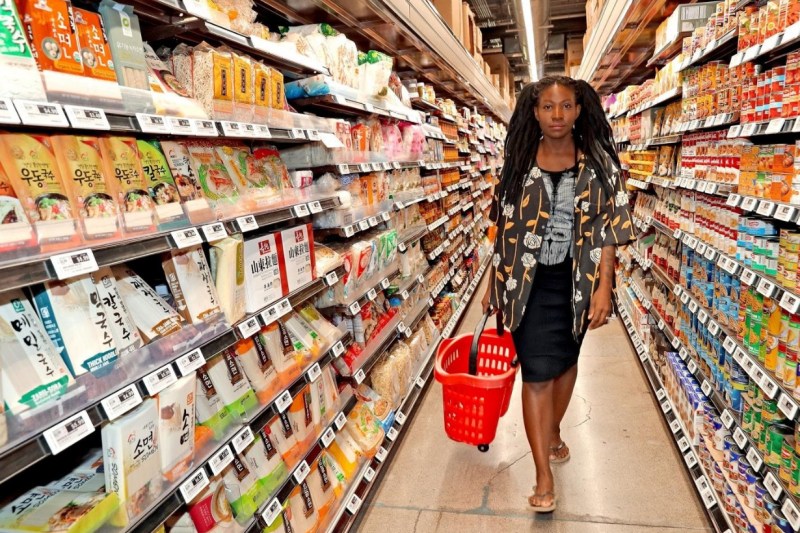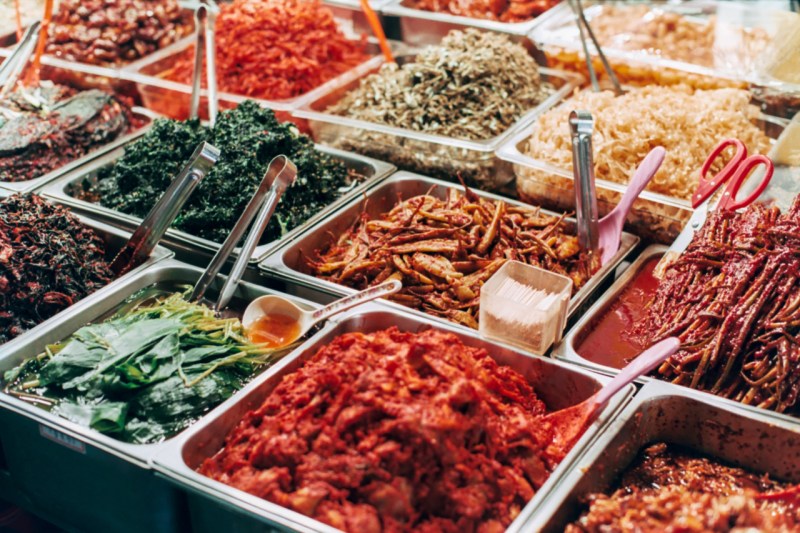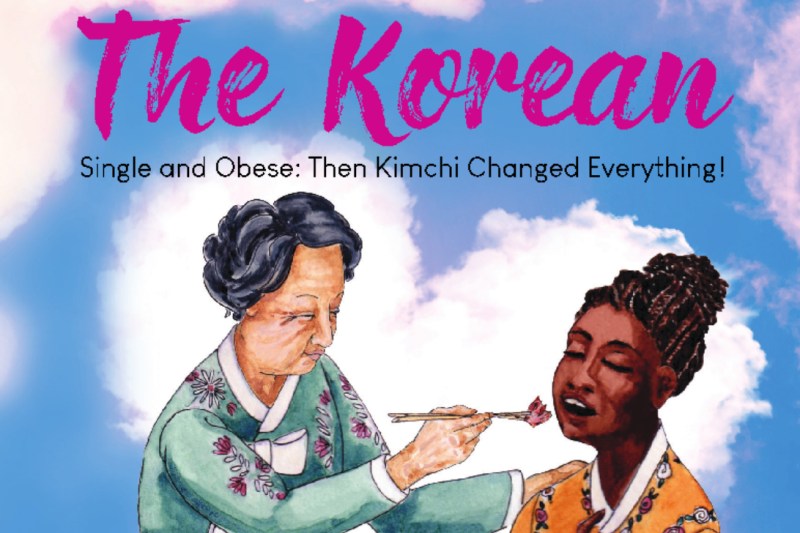
For Africa Yoon, her first encounter with Korean cuisine actually reminded her of home.
“When I was six years old, I tried kimchi at the United Nations school,” said Yoon. “I liked it; in Cameroonian cuisine, our food isn’t usually spicy, but we do always have a pepper paste which is super spicy that is always on the table. My mum ate a lot of spice, and as a child, I knew how to take spice early in life. Kimchi is served on the side of all the meals of Korean cuisine, just like the African pepper.”
Related Guides
- The 23 Best Cookbooks of All Time
- 10 Must-Read Cookbooks by Black Chefs
- Meet the Chef Who Is Changing Korean Fine Dining in America
What she didn’t know at the time was how much this small encounter would eventually stir up a passionate interest in Korean cuisine as an adult. Yoon has led an interesting life. As a daughter of a diplomat, she moved to America from Cameroon at six years old. As an adult, she’s had a variety of interesting jobs ranging from television host to cultural activist. Now, she’s the author of a new memoir, The Korean: Single and Obese: Then Kimchi Changed Everything!
How Korean Cuisine Changed Her Life

As an adult, Yoon was in a constant struggle over her health and weight. Overworking and not paying attention to her diet, Yoon eventually gained 120 pounds. One day while sampling a pastry at a Korean grocery store, Yoon was called fat by an elderly Korean woman. Amazingly, instead of becoming upset, Yoon extended an olive branch. “After the initial embarrassment, I asked her if she would help me, and she did,” said Yoon. “We grocery shopped many times together on Sundays after church.”
This openness to self-examination and cultural differences is what spurred Yoon to dive headfirst into Korean cuisine. But it wasn’t just the flavors of Korean cuisine that stimulated Yoon. In her opinion, Korean food also has a distinct connection to nature, particularly the cuisine’s rich array of vegetable-forward dishes. “Korean culture changed my life because it brought me back to nature. When you live by nature, you are closer to God and creation,” said Yoon. “That is also an African way, and it got me back to that. I have never eaten such a wide variety of fruits and vegetables as I have when eating Korean food.”
As part of her dietary change, she became plant-based during this time and incorporated countless Korean ingredients to her meals, enjoying items like raw kaenip (fresh green perilla leaves) and plenty of kimchi. The result of these vibrant foods gave her something beyond just nutrition and weight loss (110 pounds in a year)—she also gained a spiritual awareness of food, something called Siwonhan-Mat in Korean.
“It’s a third sense where you feel the food in your entire being,” said Yoon. “There’s experiencing food for flavor and there is experiencing the food for smell; this is an all-encompassing feeling with Korean food. When I eat kaenip or kimchi or any of the Korean foods; I feel my body alive and I can feel the food as it travels inside of me, which is something I haven’t really experienced with another food.”
Why She Wrote a Food Memoir

For Yoon, this memoir is a way for her to share her love story with Korean cuisine and culture. But it’s also a means to showcase Korean culture without the typical tropes of “discovering” a cuisine that’s real and alive for countless people.
“We must respect and learn about the cultures behind the people,” said Yoon. “What appeals to me in Korean food is beyond taste; its story, it’s a lifestyle, a history of a people and why they came to make and eat this food. How they have been a silent fabric of American cuisine and more. To explore cuisine beyond flavor should be our new mission.”
In Yoon’s opinion, a great way to fully understand a different culture is to go straight to the source—ask a Korean or Korean American friend to “let them take you into their story.” Listen to their stories about their grandmother’s recipes. Let them show you their lived experiences. “Make the story the invisible ingredient that pushes you to explore further. I promise you the food will taste better and embracing the culture will transform you,” said Yoon. All of this is incredibly relevant as Korean culture is now more influential than ever. In the past, Korean cuisine was niche, relatively unknown outside of its community. Now, modern takes on Korean cuisine are being championed by young chefs and the media. As Korean influence grows, it’s also a confusing time for many Korean and Asian Americans who previously experienced prejudice for the very foods now celebrated by the mainstream.
In many ways, Yoon is still an outsider to Korean culture. Although her family is now multi-cultural—her husband is Korean—Yoon still feels a degree of separation despite having received tremendous love and support. Conversely, it’s precisely this outsider status that makes Yoon a great person to tell this story of bridging cultural differences.
“Mine is a story of love. Sometimes even because of historic tensions between people of different races, two people can have an issue and then people make it about race when it isn’t,” said Yoon. “I hope that my presence in the community opens the door for someone else to feel like they can turn to another person and even just say hi.”



